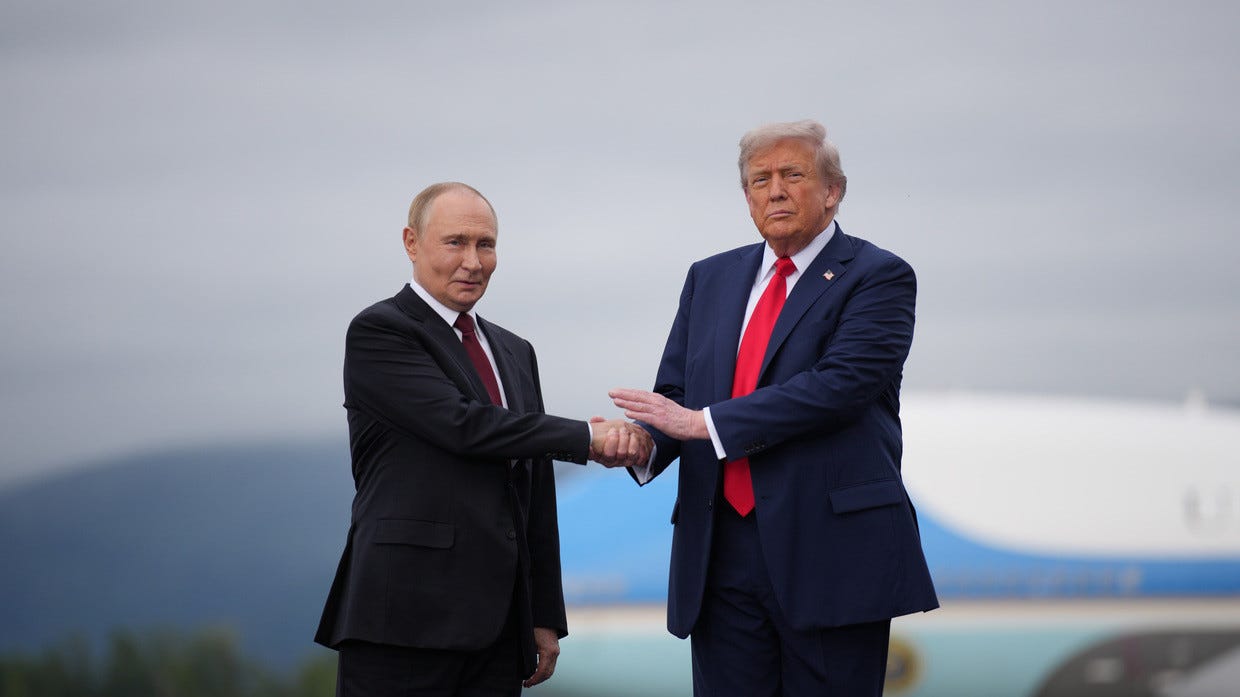Putin and Trump Discuss Ukraine, Tomahawks, and Possible Summit in Budapest
Two-hour phone call underscores deep tensions over U.S. weapons for Kiev and renewed moves toward political negotiation – with Moscow warning Washington against sabotaging peace efforts.
Russia, PUREWILAYAH.COM - Russian President Vladimir Putin and U.S. President Donald Trump held a lengthy phone call on Thursday, marking their first direct conversation since the Alaska summit in August.
The discussion, lasting nearly two and a half hours, focused on the situation in Ukraine, the threat of U.S. Tomahawk missile deliveries, and the possibility of a new face-to-face summit in Budapest.
According to Kremlin aide Yury Ushakov, the exchange was described as “very substantive and extremely frank,” signaling both cooperation and confrontation as global tensions intensify.
Moscow Reaffirms Path to Political Resolution
Putin reiterated Russia’s stated commitment to a “peaceful political-diplomatic resolution” of the conflict in Ukraine.
However, he emphasized that Russian forces currently hold the “strategic initiative” along all front sectors – a pointed reminder that Moscow negotiates from a position of strength, not concession.
Ushakov noted that Putin also drew attention to ongoing Ukrainian strikes on civilian areas, stressing that Russia is “responding appropriately” to such attacks.
Tomahawk Missiles: A Direct Threat to Peace
A central point of disagreement was the reported U.S. plan to supply Ukraine with Tomahawk cruise missiles. Putin warned that such a move would seriously damage not only battlefield dynamics but also prospects for any peace settlement.
These long-range missiles—capable of striking targets up to 2,500 km away—could reach Moscow and deep into Russian territory, an escalation seen in Moscow as a direct provocation by Washington.
While Putin acknowledged that the missiles would “not change the situation on the battlefield,” he condemned the move as a reckless escalation that could derail the fragile diplomatic pathway and further poison U.S.–Russia relations.
Budapest Summit on the Horizon
Both leaders agreed to immediately begin preparations for a potential in-person summit, with Budapest—under the leadership of Hungarian Prime Minister Viktor Orbán—emerging as a likely host.
The coordination will include an upcoming call between Russian Foreign Minister Sergey Lavrov and U.S. Secretary of State Marco Rubio, signaling formal diplomatic engagement despite profound strategic distrust.
Trump described the call as “very productive,” citing cooperation on Gaza ceasefire mediation, where Putin congratulated Trump on recent diplomatic efforts.
Return to Dialogue or New Confrontation?
The previous Alaska summit yielded no major breakthroughs but was acknowledged by both sides as an important step. The renewed dialogue, however, unfolds amid far greater tensions—especially following Washington’s continued arming of Kiev.
For Moscow, any new summit must reflect mutual security interests, not unilateral American pressure. The Kremlin’s message was unmistakable: peace negotiations cannot coexist with U.S. missile deployments on Russia’s borders.
As Washington weighs further military escalation in Ukraine, the Putin–Trump dialogue suggests a parallel track of high-stakes diplomacy.
Whether Budapest becomes a turning point for negotiation—or another stage for geopolitical confrontation—will depend heavily on Washington’s next move.
For now, Moscow has made its position clear: supplying Tomahawks to Kiev would not be an act of support for peace, but a declaration against it. (PW)


